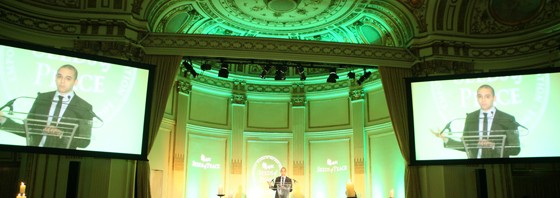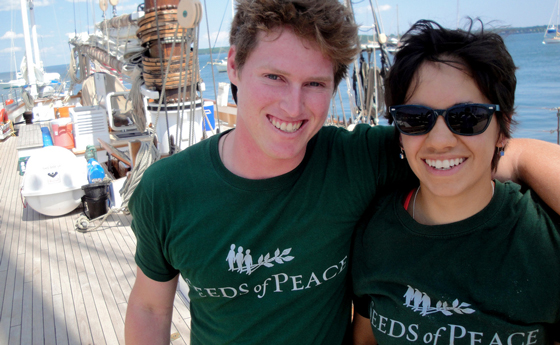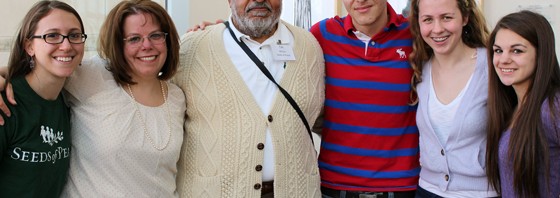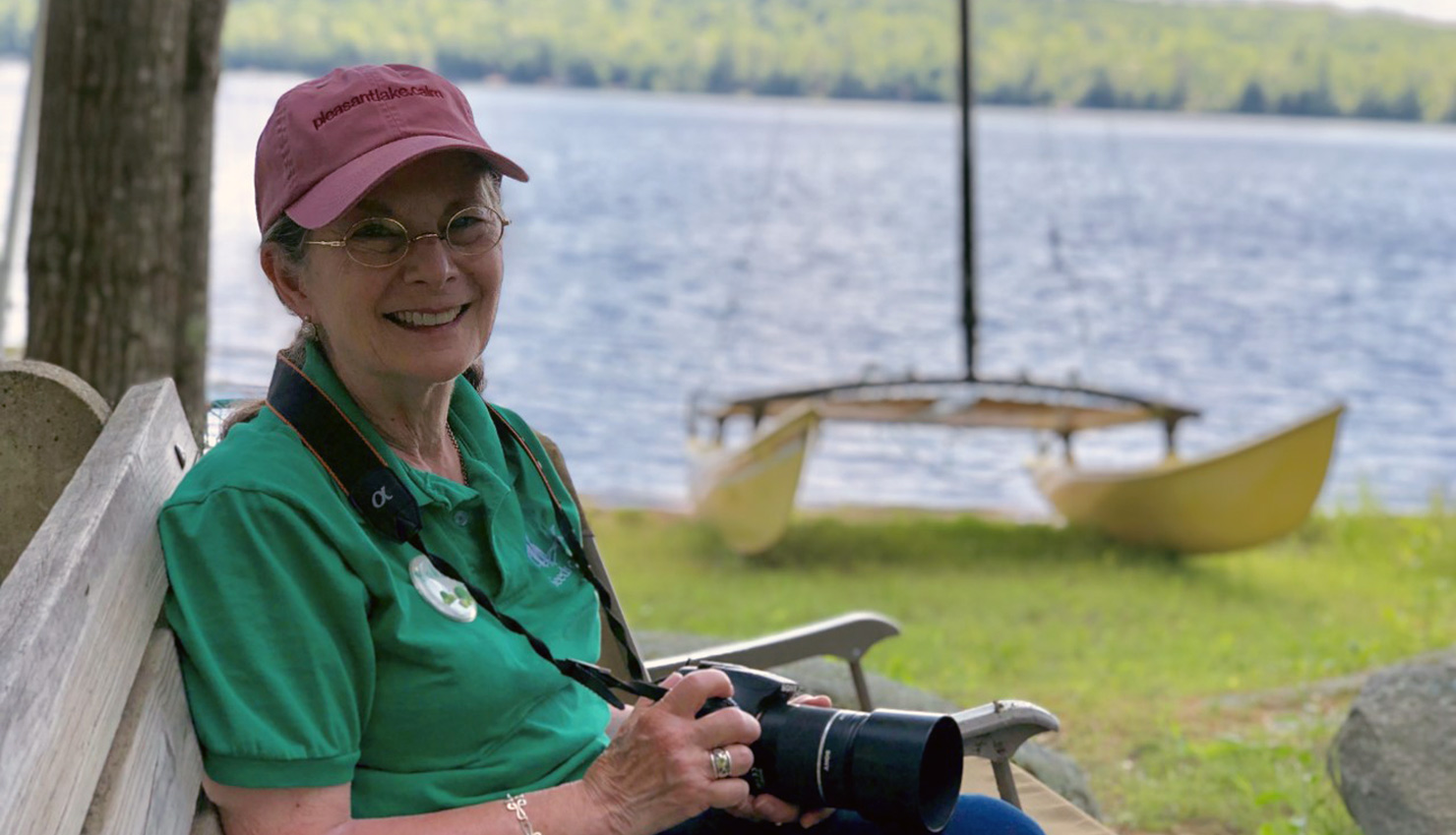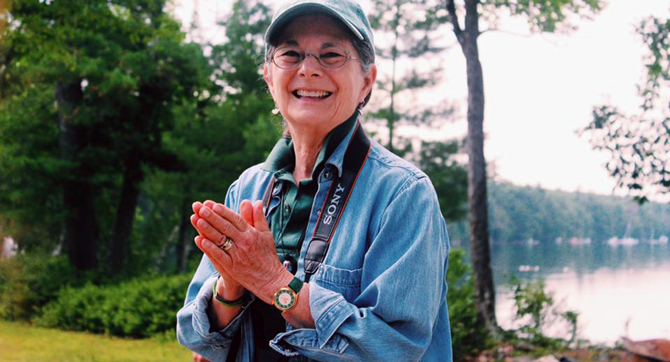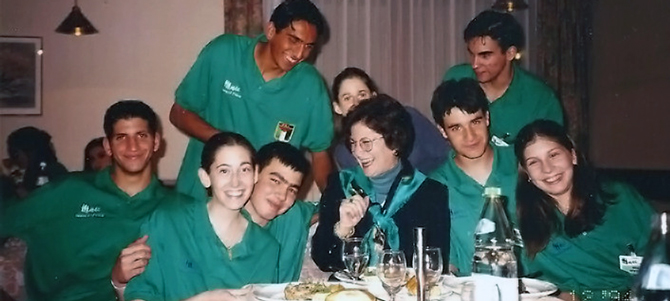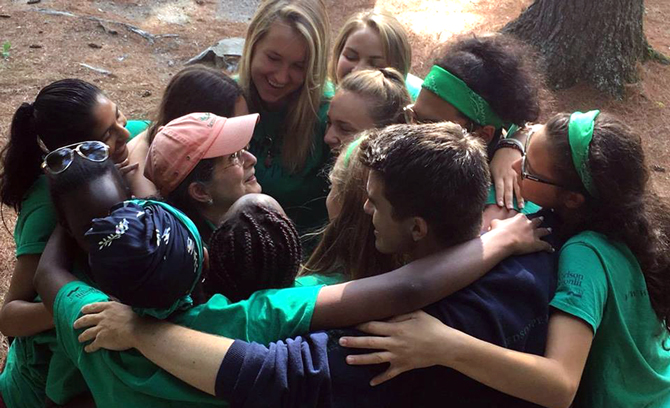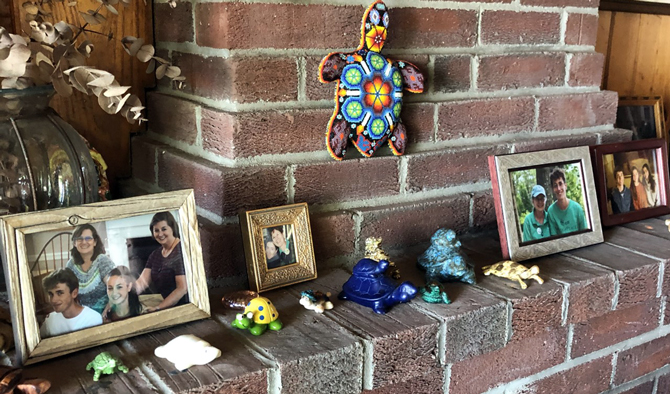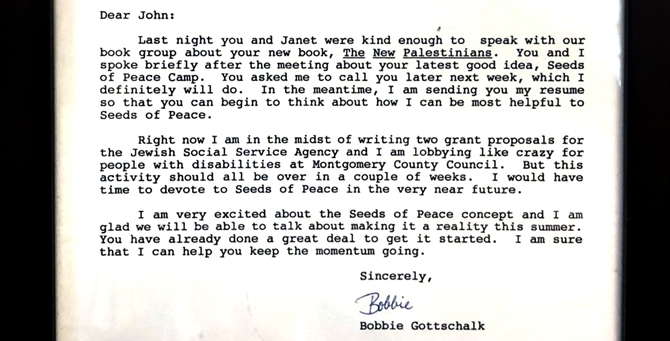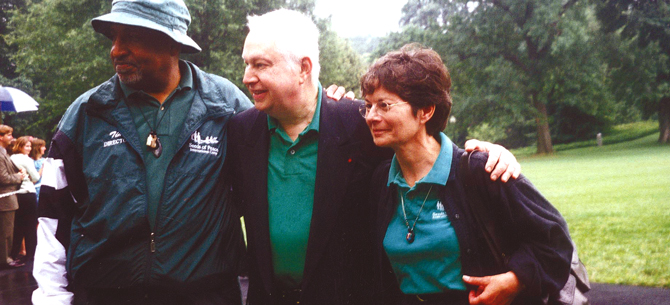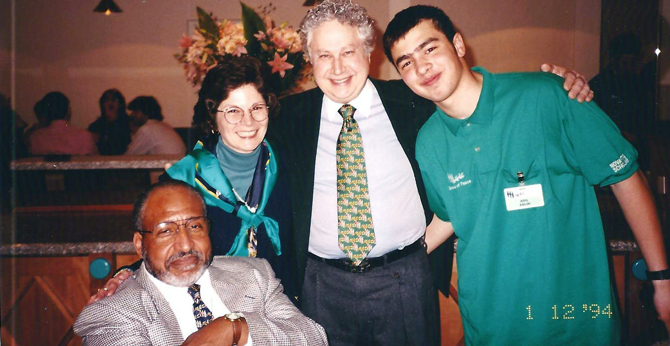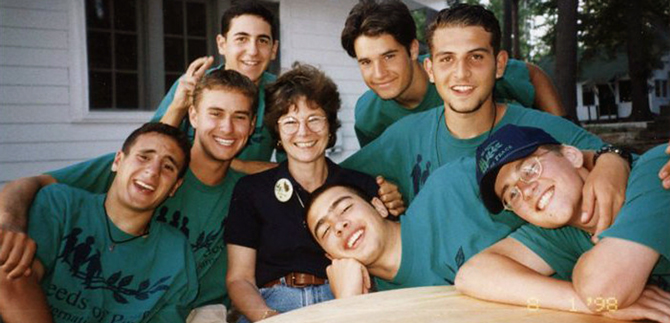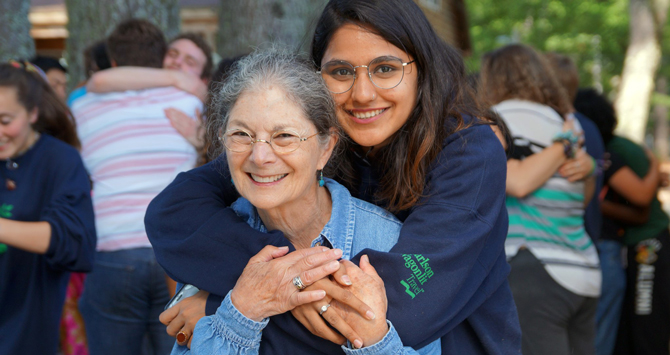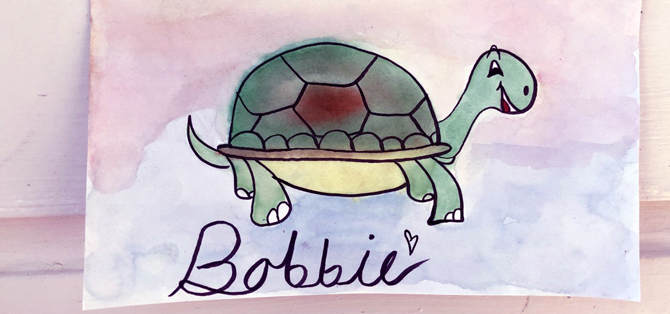E-mail and the Internet are keeping the hope for peace alive among Israeli and Arab teenagers who became friends through Seeds of Peace, says Institute senior fellow John Wallach
When a suicide bomb was detonated this fall in a Jerusalem shopping mall frequented by teenagers after school, a group of Arab and Israeli teenagers reached out to console each other via the Internet. A Jordanian youth wrote that at first the bombing seemed to threaten the friendships he had made with Israelis his age this past summer at the Seeds of Peace summer camp program in Maine. “I thought that all we did in the camp was gone with the wind,” he wrote. But then an Israeli camper e-mailed him that he knew terrorists were responsible for the tragedy and had urged his Israeli friends “not to blame the whole Palestinian people.”
“The Jordanian youth was reassured. He felt he could trust his new Israeli friend,” says John Wallach, a senior fellow at the U.S. Institute of Peace and founder of the Seeds of Peace program, which brings together Arab and Israeli teenagers to help break the generational cycles of violence that sustain the conflict in the Middle East. “The common theme among the Arab and Israeli campers was that neither community would permit a desperate act of terror to destroy the friendships they had built at Seeds of Peace.”
Dozens of Israeli and Arab youths are determinedly maintaining friendships through e-mail discussions and an online “chat room” that was recently established by an Israeli girl who attended the camp last summer, Wallach says. After several weeks of bonding in the Maine woods, the youths returned to their homes in Egypt, Israel, Jordan, Morocco, Tunisia, and the West Bank and Gaza Strip, with a strong desire to keep the friends they made while playing sports and games, and participating in organized discussions about the Middle East conflict.
“God bless the computer, e-mail, and the Internet ‘chat session,’” says Wallach. “Without them, hundreds of Seeds of Peace youngsters would have no way to maintain the friendships they worked so hard to forge during their five weeks in the United States.” The campers send messages to each other every day, “some filled with pain and anger, others with compassion, reassurance, and encouragement,” says Wallach, award-winning foreign editor for the Hearst newspapers in 1968-94 and co-author of several books on the Middle East. For his work at Seeds of Peace, he received the UNESCO Peace Prize in 1996 and the Legion of Honor of the Hashemite Kingdom of Jordan from King Hussein in 1997.
While at the Institute, Wallach will be writing a report on the methodology Seeds of Peace has developed to help young people develop the listening skills and empathic abilities that have helped them move from prejudice, misunderstanding, and hatred to understanding and trust. The goal is to share these methods with other organizations doing similar work around the world, he says.
In the last five years, almost 800 Arab and Israeli teenagers have participated in the Seeds of Peace experience. Many of the campers are chosen by their governments, but they come from a broad range of backgrounds, including prominent and refugee families. In daily 90-minute conflict resolution sessions, they learn how to disagree yet remain friends—in short, how to coexist, Wallach says. But when they return home, they confront the same physical barriers they left, closures that prohibit movement not only between Israel and the Palestinian territories but between neighboring Palestinian villages. “Armed troops and police—not to mention fearful parents—are a strong disincentive to venture across these geographic and psychic borders,” Wallach says.
Returning Home from Camp
Thus, the return home poses real challenges for the campers, says Wallach. “After a summer of sharing everything from shaving cream and showers to sports and sing-alongs, ‘reentry’ into hostile societies often is as sobering for them as it must be for astronauts returning from orbit. The life support system is gone. Caring counselors and trained facilitators are nowhere in sight. No longer are they in a ‘safe place.’”
The Seeds of Peace summer camp stretches along Maine’s Pleasant Lake, which takes its name from its remote and tranquil setting. The Palestinian and Israeli youths sharing canoes on the lake live less than a mile apart at home, but in the tormented Middle East those few hundred yards can be an insurmountable distance, Wallach notes. Indeed, their homes can be harsh and dangerous places where buses get blown up and stone-throwing melees often turn into violent bloodbaths.
“And even more intimidating than the physical dangers of going home are the emotional ones, the personal trauma of returning to places where your new friends are still regarded as enemies,” Wallach says. A Jordanian teenager wrote on the Internet that when he and other Jordanian campers got home, “I faced reality. We were rejected everywhere, we were traitors.” A Palestinian wrote than when she returned her refugee camp friends simply couldn’t believe she had bunked with and shared her meals with Israelis “and they didn’t shoot you.” An Israeli complained that his peers blamed the most recent terrorist bombing on “your new friends,” as if he were somehow complicit because he had forged friendships with the people he was supposed to hate.
Online Chat Room
The Israeli girl who organized the chat room wrote that “connecting … for the first time was a great honor. People from all over the Middle East … showed up [on the Internet] … [Everyone was] delighted and anxious to hear what the others had to say … Getting into one another’s sayings, experiences, etc. lasted two hours!” The chat room, which has become a weekly event, brings together online campers, counselors, and leaders from Jordan, Egypt, Israel, the Palestinian Authority, and the United States.
The e-mail communication also continues, Wallach says. “Messages are sent daily. Many revolve around the normal, everyday things that kids have to deal with: struggle with schoolwork, feuds with friends and family, romantic flings and inevitable disappointments. But all are full of hope and convey a genuine caring about the Seeds of Peace community.”
Not everyone is yet connected to the World Wide Web. But, notes Wallach, the manifesto of Seeds of Peace is clear in the words of one Jordanian youth, who wrote, “People! We have to communicate, we have to know each other even better, we have to do what our leaders are not doing—and will not do if we don’t push them … All of us are so very lucky to be a part of the Seeds of Peace family; please continue fighting for what you believe in.”


